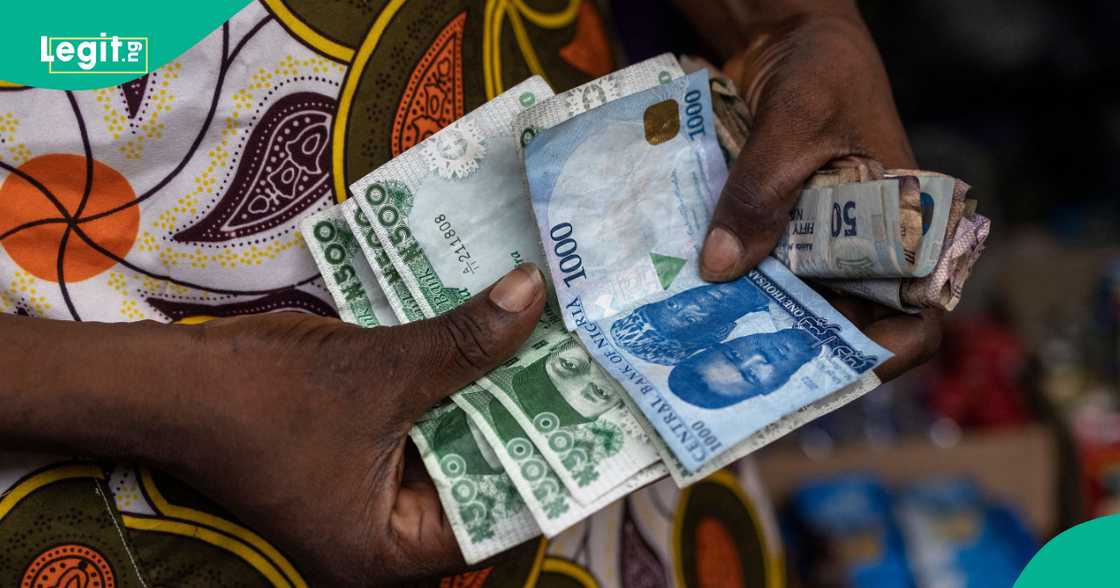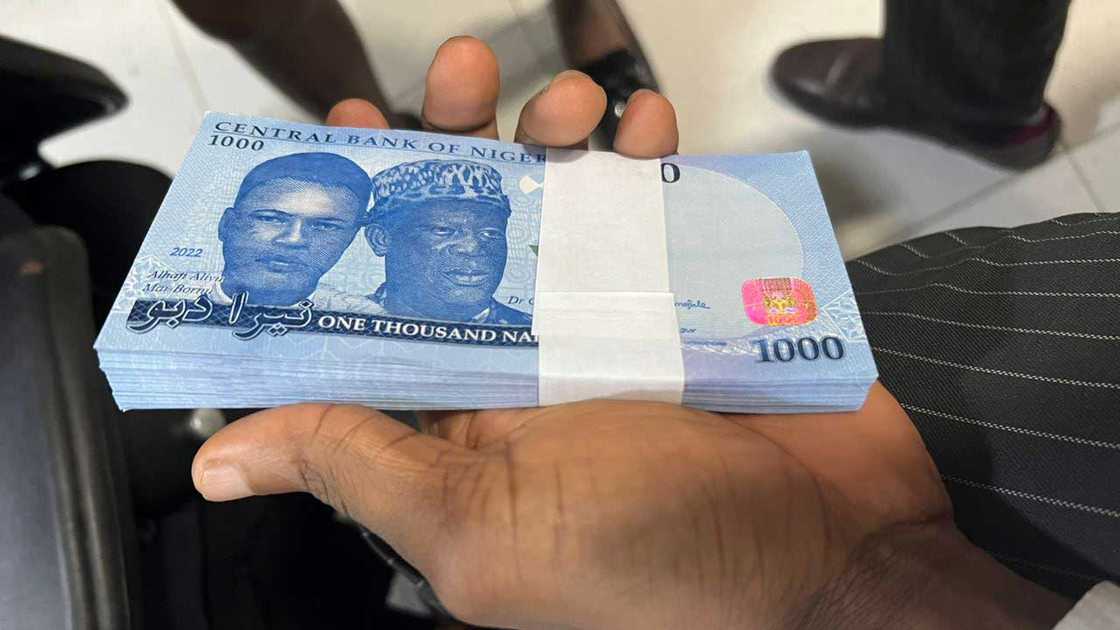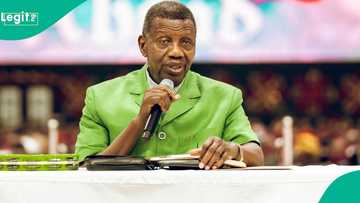How To Spot Fake N1,000 Notes As Counterfeit Floods Markets, Traders Share Experience
- Traders in Ilorin have recounted their experience with fake 1,000 naira notes which has flooded the market
- Report has it that the fraudsters are targeting major markets, targeting POS operators and merchants
- There are signs to look out for to easily identify fake notes, which include checking texture, gold kinegram patch
Legit.ng journalist Dave Ibemere has over a decade of experience in business journalism, with in-depth knowledge of the Nigerian economy, stocks, and general market trends.
The National Orientation Agency (NOA) has called on residents, traders in Ilorin, Kwara state to be vigilant as counterfeit N1,000 notes flood markets.
Several traders have shared their experience on the fake notes, which closely mimic both the old and redesigned N1,000 bills.

Source: Getty Images
Abdulganiyu Olurotimi Dare, NOA’s state director, warned that the criminal syndicates are exploiting peak market hours to target unsuspecting merchants and Point of Sale (POS) operators.
He said the counterfeit bills bear batch numbers 364232 and 898248 and can be spotted through blurred portraits, irregular security features, and faulty watermarks, DailyTrust reports.
He told reporters:
“We urge residents to scrutinize every ₦1,000 note they receive, especially during large cash transactions."
Traders share experience on fake 1,000 notes
Olarewaju Kunle, a Pos Operator, said he discovered the fake notes only while reconciling accounts at the end of the day.
He said:
“It was an outright loss for me."
Pepper seller Mallam Nasiru Salisu also recounted receiving one from a female customer.
He said.
“It was only when a POS operator flagged it that I realised. I had to destroy it afterwards."
Meat vendor Alhaji Rasheedat said she noticed ink peeling off a N1,000 bill within 30 minutes of receiving it, raising her suspicions.

Source: Getty Images
How to spot fake new naira notes
According to the Central Bank of Nigeria (CBN), genuine N1,000 redesigned notes carry:
- Portraits of Alhaji Aliyu Mai-Bornu and Dr. Clement Isong
- Optically Variable Ink (OVI) that changes colour with viewing angle
- A gold kinegram patch with “N1000” and Nigeria’s coat of arms
- Electrotype watermark visible against light
- Raised intaglio print that feels rough to the touch
- Windowed metallic security thread that shimmers when tilted

Read also
Nigerians react as Pastor Adeboye requests 10 people to donate N1bn each for building development
Older N1,000 notes share many of these features, though the design differs slightly.
Quick checks for counterfeits
- Texture: Real notes are crisp with raised prints; fakes often feel soft and dull.
- Ribbon thread: Genuine bills have embedded threads, while fakes may use painted lines that peel when scratched.
- Serial numbers: Each note has a unique number; duplicates are suspect.
- Under UV light: Authentic bills display glowing security threads and denomination text, with serial numbers shifting from black to green.
CBN announces cost of printing, disposing naira notes
Earlier, Legit.ng reported that the Central Bank of Nigeria (CBN) said it spent N315.18 billion on currency issues in 2024.
The amount spent is a 306% increase compared to N77.67bn recorded in 2023.
Naira notes and coins are printed/minted by the Nigeria Security Printing and Minting (NSPM) Plc and, sometimes, other overseas companies and issued by the CBN.
Source: Legit.ng



